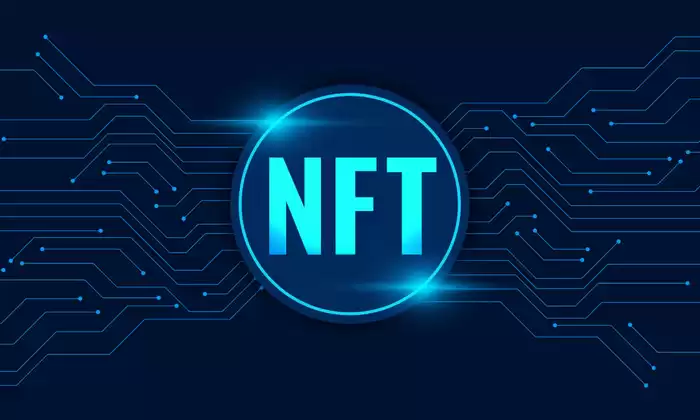-
 bitcoin
bitcoin $87959.907984 USD
1.34% -
 ethereum
ethereum $2920.497338 USD
3.04% -
 tether
tether $0.999775 USD
0.00% -
 xrp
xrp $2.237324 USD
8.12% -
 bnb
bnb $860.243768 USD
0.90% -
 solana
solana $138.089498 USD
5.43% -
 usd-coin
usd-coin $0.999807 USD
0.01% -
 tron
tron $0.272801 USD
-1.53% -
 dogecoin
dogecoin $0.150904 USD
2.96% -
 cardano
cardano $0.421635 USD
1.97% -
 hyperliquid
hyperliquid $32.152445 USD
2.23% -
 bitcoin-cash
bitcoin-cash $533.301069 USD
-1.94% -
 chainlink
chainlink $12.953417 USD
2.68% -
 unus-sed-leo
unus-sed-leo $9.535951 USD
0.73% -
 zcash
zcash $521.483386 USD
-2.87%
What is the difference between NFT and cryptocurrency?
NFTs and cryptocurrencies differ significantly in terms of fungibility, ownership representation, and value derivation, with NFTs embodying unique assets and cryptocurrencies serving as mediums of exchange.
Oct 10, 2024 at 09:05 am

- Non-Fungible Tokens (NFTs) are unique, non-interchangeable digital assets that represent ownership of a specific item, such as a piece of art, a video clip, or a virtual item.
- Cryptocurrencies are digital or virtual currencies that use cryptography for secure transactions and control of the creation and transfer of new units.
- NFTs are non-fungible, meaning each one is unique and cannot be replaced by another identical token.
- Cryptocurrencies are fungible, meaning one unit of a cryptocurrency can be exchanged for another identical unit with equal value.
- NFTs represent ownership of a specific digital or physical asset, such as a work of art or a collector's item.
- Cryptocurrencies do not represent ownership of any specific asset but instead serve as a medium of exchange or store of value.
- NFTs derive their value from their scarcity, uniqueness, and the perceived value of the underlying asset.
- Cryptocurrencies derive their value from their utility as a means of payment, investment, or speculative asset.
- NFTs are typically traded on specialized marketplaces or platforms that facilitate the sale and purchase of NFTs.
- Cryptocurrencies are traded on cryptocurrency exchanges, where users can buy, sell, and exchange different cryptocurrencies.
- NFTs are currently not subject to specific regulations in most jurisdictions.
- Cryptocurrencies are subject to varying regulations depending on the jurisdiction and country in which they operate.
- NFTs are primarily used for the collection, trading, and display of unique digital or physical assets.
- Cryptocurrencies are used for a wide range of purposes, including payments, remittances, investments, and speculative trading.
| Feature | NFT | Cryptocurrency |
|---|---|---|
| Fungibility | Non-fungible | Fungible |
| Ownership | Represents specific digital/physical asset | Medium of exchange/store of value |
| Value | Derives from uniqueness and perceived value | Derives from utility and speculative value |
| Transactions | Traded on specialized marketplaces | Traded on cryptocurrency exchanges |
| Regulation | Currently unregulated | Subject to varying regulations |
| Use Cases | Collection, trading, display of unique assets | Payments, remittances, investments, speculative trading |
Disclaimer:info@kdj.com
The information provided is not trading advice. kdj.com does not assume any responsibility for any investments made based on the information provided in this article. Cryptocurrencies are highly volatile and it is highly recommended that you invest with caution after thorough research!
If you believe that the content used on this website infringes your copyright, please contact us immediately (info@kdj.com) and we will delete it promptly.
- GPT-5.3 Codex-Spark Ignites AI Coding with Cerebras Hardware, Achieving Unprecedented Speeds
- 2026-02-13 09:35:01
- Blooming Forever: Florida Roses, Valentine's Day, and the Enduring Appeal of Long-Lasting Plants
- 2026-02-13 09:50:02
- Crypto PAC Fairshake Targets Congressman Al Green in High-Stakes Primary, Fueling Political Debate
- 2026-02-13 09:50:02
- Bitcoin Traders Secure Partial Profits as Market Hovers Near $68K Amidst Range Dynamics
- 2026-02-13 07:40:02
- Crypto ETFs Gain Lasting Appeal as Investment Landscape Evolves
- 2026-02-13 06:50:01
- Enlivex Therapeutics' RAIN Token Makes a Big Splash on Kraken Exchange, Cementing Digital Strategy
- 2026-02-13 07:30:02
Related knowledge

How to Set Up Automated NFT Trading Triggers? (Bot Trading)
Feb 08,2026 at 06:39pm
Understanding NFT Trading Bots1. NFT trading bots are software programs designed to execute buy and sell orders on decentralized marketplaces without ...

How to Revoke NFT Permissions to Protect Your Wallet?
Feb 06,2026 at 11:00am
Understanding NFT Permission Risks1. Many decentralized applications request unlimited approval when users connect their wallets to interact with NFTs...

How to Use the Blur "Sweep" Feature to Buy Multiple NFTs?
Feb 10,2026 at 07:39pm
Understanding the Sweep Functionality1. The Sweep feature in Blur allows users to purchase multiple NFTs from a single collection or across several co...

How to Host Your NFT Metadata on IPFS? (Decentralized Storage)
Feb 10,2026 at 11:40pm
Understanding IPFS and Its Role in NFT Metadata Storage1. IPFS stands for InterPlanetary File System, a peer-to-peer hypermedia protocol designed to m...

How to Buy NFTs on the Polygon Network Using MATIC?
Feb 09,2026 at 09:59pm
Setting Up a Polygon-Compatible Wallet1. Install a Web3 wallet extension such as MetaMask or Coinbase Wallet on your browser or mobile device. 2. Swit...

How to Use Nansen to Track NFT "Smart Money"?
Feb 07,2026 at 10:39pm
Understanding Smart Money in the NFT Ecosystem1. Smart money refers to wallets that consistently generate profits across multiple NFT market cycles, o...

How to Set Up Automated NFT Trading Triggers? (Bot Trading)
Feb 08,2026 at 06:39pm
Understanding NFT Trading Bots1. NFT trading bots are software programs designed to execute buy and sell orders on decentralized marketplaces without ...

How to Revoke NFT Permissions to Protect Your Wallet?
Feb 06,2026 at 11:00am
Understanding NFT Permission Risks1. Many decentralized applications request unlimited approval when users connect their wallets to interact with NFTs...

How to Use the Blur "Sweep" Feature to Buy Multiple NFTs?
Feb 10,2026 at 07:39pm
Understanding the Sweep Functionality1. The Sweep feature in Blur allows users to purchase multiple NFTs from a single collection or across several co...

How to Host Your NFT Metadata on IPFS? (Decentralized Storage)
Feb 10,2026 at 11:40pm
Understanding IPFS and Its Role in NFT Metadata Storage1. IPFS stands for InterPlanetary File System, a peer-to-peer hypermedia protocol designed to m...

How to Buy NFTs on the Polygon Network Using MATIC?
Feb 09,2026 at 09:59pm
Setting Up a Polygon-Compatible Wallet1. Install a Web3 wallet extension such as MetaMask or Coinbase Wallet on your browser or mobile device. 2. Swit...

How to Use Nansen to Track NFT "Smart Money"?
Feb 07,2026 at 10:39pm
Understanding Smart Money in the NFT Ecosystem1. Smart money refers to wallets that consistently generate profits across multiple NFT market cycles, o...
See all articles










































































